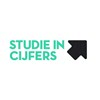
How do you develop safe apps for mobile phones? How do you produce 3D images of an MRI scan? How do you program a computer system to find the quickest travel route?
We are becoming increasingly dependent on computers, but they
cannot work without us either! After all, someone has to tell them
what to do. That requires people who enjoy devising ever-smarter
solutions and innovations.
Computing scientists design, improve and implement the software and
computer systems that businesses and our social life cannot do
without.
Use your skills as you learn
Computing Science is the discipline that involves the study and
development of computer systems. This can involve either new or
existing systems. The stimulating aspect of this degree programme
is that you can put the knowledge and skills you acquire to
practical use straightaway, for example by writing a useful
computer programme.
More than just programming
If you choose to study Computing Science at Groningen, you will
learn high level programming in several languages. But programming
accounts for only a quarter of the degree. You will also be
producing documentation, carrying out analyses, working on your
math knowledge and skills, collaborating with others, giving
presentations and writing.
Computing science is a good subject to study if you have
wide-ranging interests; it can be easily combined with another
subject area.
| Semesters | ||||
|---|---|---|---|---|
| CoursesCourse Catalog > | 1a | 1b | 2a | 2b |
| Introduction to Computing Science (5 EC) | ||||
| Introduction to Logic (5 EC) | ||||
| Programming Fundamentals (10 EC) | ||||
| Computer Architecture (5 EC) | ||||
| Discrete Structures (5 EC) | ||||
| Algorithms and Data Structures in C (for CS) (5 EC) | ||||
| Calculus for Computing Science (5 EC) | ||||
| Introduction to Information Systems (5 EC) | ||||
| Computer Networks (5 EC) | ||||
| Linear Algebra (5 EC) | ||||
| Object-Oriented Programming (for CS) (5 EC) | ||||
The courses above are an example of the first-year programme.
Credits per year: 60 ECTS; most courses are 5 ECTS.
More information about the courses can be found here: https://ocasys.rug.nl/current/catalog/programme/56978
Please be advised that Faculty of Science and Engineering
students are expected to adhere to our Bring Your Own Device (BYOD)
policy, ensuring seamless integration of personal electronic
devices for academic purposes. For more detailed information on our
BYOD policy, please visit our webpage.
Exchange: All our science and engineering programmes offer study abroad possibilities at a number of partner institutions. Our partners include top-100 universities in Europe (for example in Germany, UK, and Sweden) and in the USA, China, South-East Asia, and South America. Our exchange programmes have a typical duration of one semester and count toward your final degree.
Internship: This programme offers you the opportunity to carry out a research project of a variable number of months at a company in the Netherlands or abroad, as part of your thesis. Our choice of industry partners ranges from large multinationals (such as Shell, Philips, Unilever) to dynamic small and medium enterprises in the Groningen area.
wiskunde B
wiskunde B
wiskunde B
| Specific requirements | More information |
|---|---|
| language test |
Language proficiency certificate for English (except for applicants with a Dutch pre-university education (VWO) as well as the exemptions listed on the language exemptions webpage). More information: https://www.rug.nl/fse/programme/admissions/bsc/language |
| other admission requirements |
Before you apply! When you cannot fulfil the vwo requirement, due to deficient profile or if you want to be admitted on the basis of a successfully passed first year of HBO or colloquium doctum, you need to submit an additional admission request via the Admission Board Bachelor programmes. Please go to this website for more information. |
The degree programme will organize a matching procedure. Although the advice is not binding participation is compulsory. More information about matching: https://www.rug.nl/fse/education/matching
| Type of student | Deadline | Start course |
|---|---|---|
| Dutch students | 01 May 2025 | 01 September 2025 |
| EU/EEA students | 01 May 2025 | 01 September 2025 |
| non-EU/EEA students | 01 May 2025 | 01 September 2025 |
Please note: for your application in Studielink, please choose the option without the 'Numerus fixus programme' label.
The degree programme will organize a matching procedure. Although the advice is not binding participation is compulsory. More information about matching: https://www.rug.nl/fse/education/matching
| Specific requirements | More information |
|---|---|
| previous education |
Secondary education equivalent to Dutch pre-university (vwo) is required. A list of qualifications that are considered equivalent to pre-university education in the Netherlands can be found here: https://www.rug.nl/education/application-enrolment-tuition-fees/admission/procedures/non-dutch-qualification/ If you have any questions concerning admission to the programme, please contact our Admissions Office: https://www.rug.nl/education/application-enrolment-tuition-fees/contact/ |
| additional subject |
Sufficient background knowledge in Mathematics is required. The Admissions Board will determine whether your background knowledge in this subject is sufficient to start the Bachelor's degree programme of your choice. |
| language test |
You will need to submit proof of English proficiency in accordance with the requirements of the Faculty of Science and Engineering. Please find our English language requirements (exemptions, IELTS, TOEFL, Cambridge and more) on this page: https://www.rug.nl/fse/programme/admissions/bsc/language |
| Type of student | Deadline | Start course |
|---|---|---|
| Dutch students | 01 May 2025 | 01 September 2025 |
| EU/EEA students | 01 May 2025 | 01 September 2025 |
| non-EU/EEA students | 01 May 2025 | 01 September 2025 |
Please note: for your application in Studielink, please choose the option without the 'Numerus fixus programme' label.
| Nationality | Year | Fee | Programme form |
|---|---|---|---|
| EU/EEA | 2024-2025 | € 2530 | full-time |
| non-EU/EEA | 2024-2025 | € 19300 | full-time |
Practical information for:
Many students in Computing Science are offered a job before they have even graduated! They work in a wide variety of occupations in the Netherlands or abroad. There are plenty of career opportunities for you as a creative problem-solver!
Finding work when you graduate
After completing their Master's degree, many graduates find work with IT firms, large companies, public-sector organizations, hospitals or educational institutions, where they design software components or lead projects that involve merging various components or even systems.
Other career prospects
If you have knowledge of computing, the ability to think at an academic level and a problem-solving approach, many companies will welcome you, in management positions too. Education and science journalism are other possible areas.
Or will you study for a PhD?
Some graduates choose a PhD programme involving four years of research. The research concludes with a thesis, which will earn you the title of Doctor of Computing Science. Everyone who does this finds an interesting job, either within the university or outside, for example at a hospital or at an independent firm.
The mission of the Bernoulli Institute is to perform outstanding academic research and teaching in Mathematics, Computer Science, and Artificial Intelligence, and to maintain international leadership herein; to foster these disciplines as a living body of knowledge, and to make it relevant to society in its broadest sense. The symbiosis between pure and applied science, and between mono- and multidisciplinary research and teaching, is a distinguishing characteristic of our institute. As an important part of this mission we aim to transfer our results to other areas of science and technology, and initiate and expand inter- and multi-disciplinary research collaborations.
The following research groups within the institute focus on computing science:
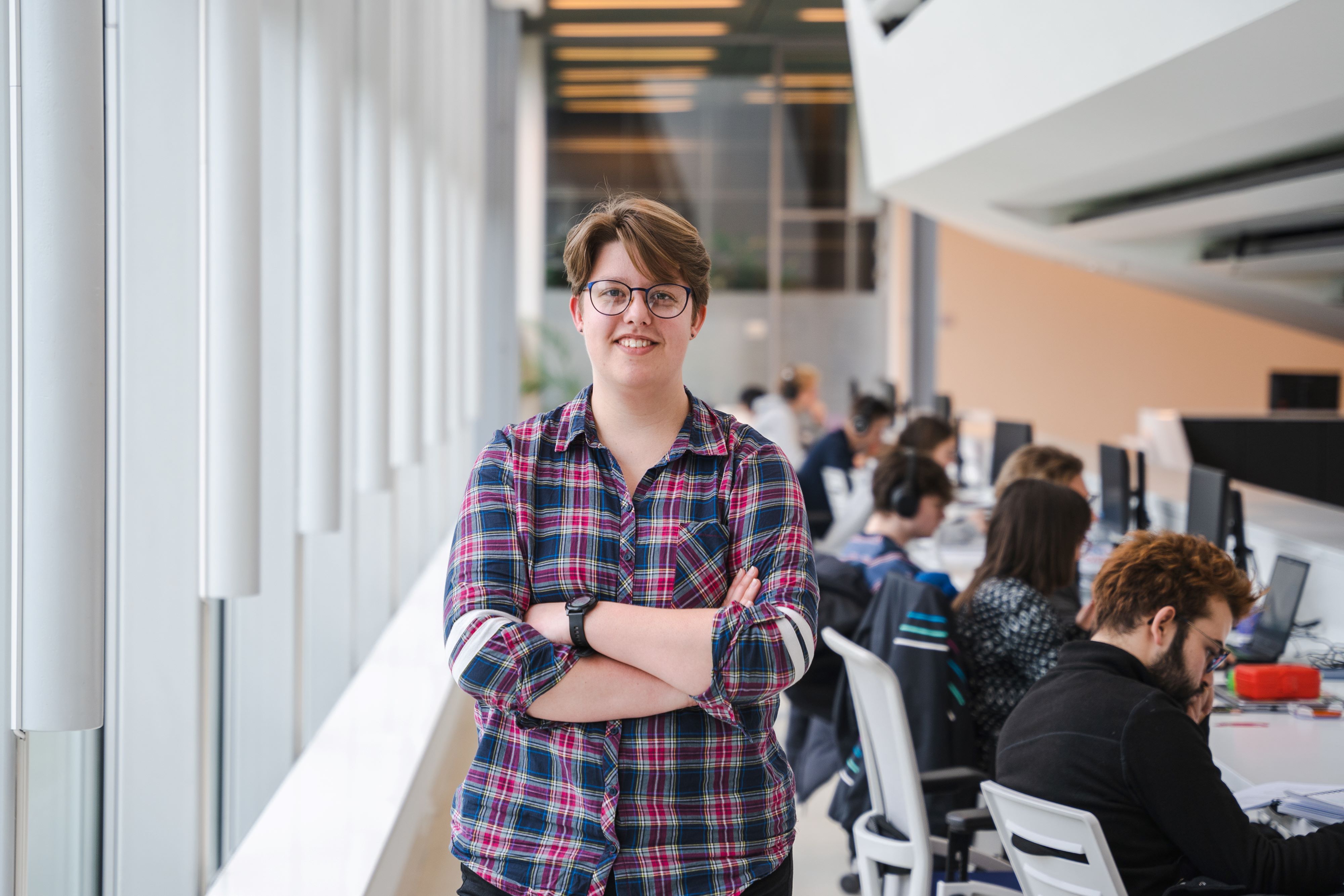
I really like courses that are heavily logic based
I chose to study Computing Science because I am really interested in problem solving and puzzling how all the pieces fit together. Personally, I really like courses that are heavily logic based such as Discrete Structures and Program correctness. These are the courses that I most connected with since they use logic to prove that what you're doing makes sense mathematically and gives you a deeper understanding of the algorithms that you are working with.
For other courses that use a lot of programming you can find solutions to problems and it gives you immediate feedback if your solution is working or not. This programme is very broad and since I did not know what field of computing science I preferred; this gave me the chance to explore multiple angles. The bachelors programme has also given me the opportunity to do a project for a company. This experience has helped me to take a look at a potential career option for the future.
I really enjoy living and studying in Groningen where I am active in both my study association and a student theatre association. The general feel of studying in Groningen is also really nice. There is a great and inviting atmosphere on campus. and since there are so many international students it feels like everyone is very welcoming and interested and open to learn about different cultures.
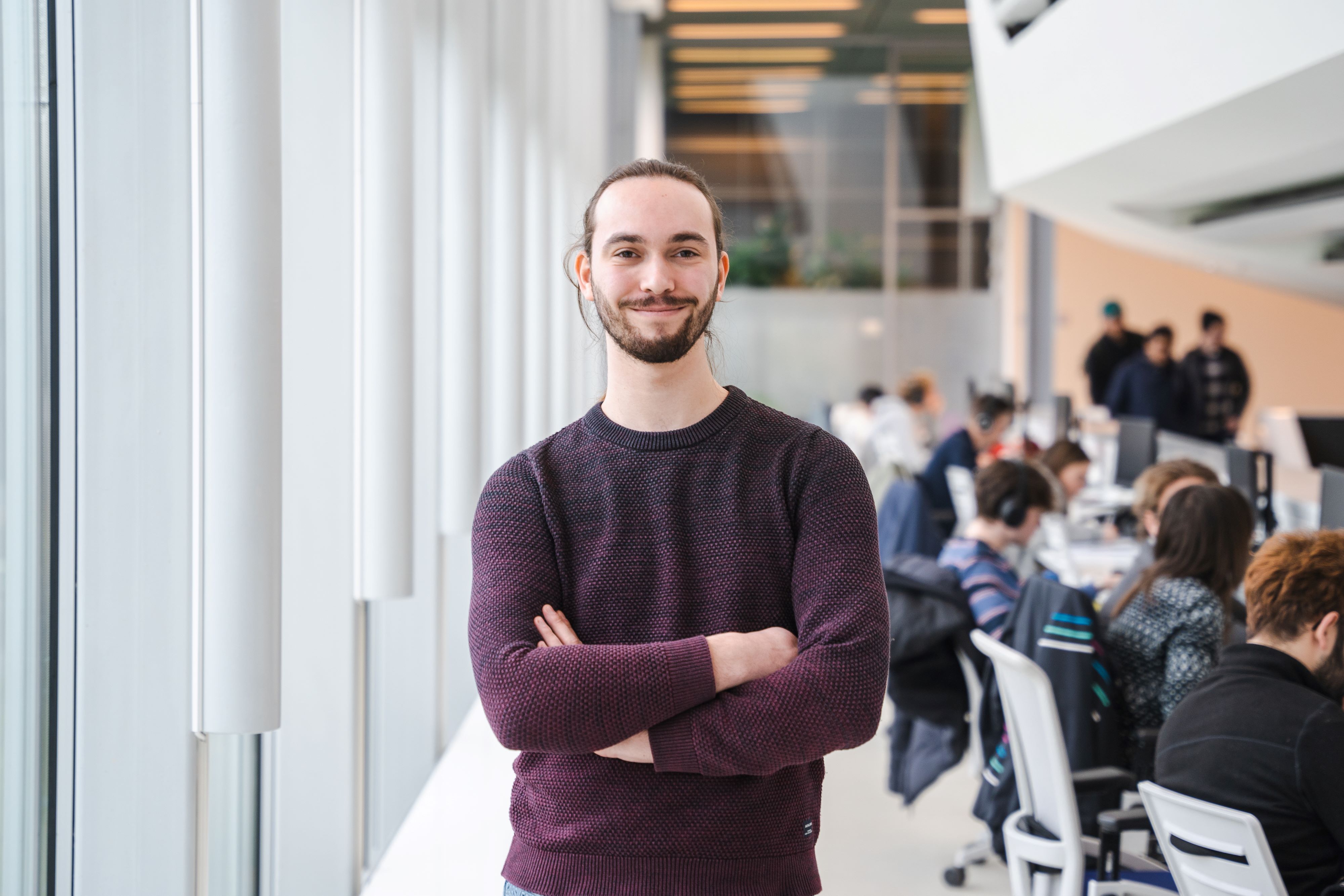
The programme provides a great balance between theoretical knowledge and practical applications
Studying Computing Science at the University of Groningen has been a fascinating journey. When I first started, I was mainly interested in programming, as I had some prior experience and enjoyed it immensely. However, I soon discovered that Computing Science has so much more to offer. The programme provides a great balance between theoretical knowledge and practical applications, which is perfect for someone like me who enjoys problem-solving but also wants to make a real-world impact.
One of the things that surprised me about the programme is how diverse it is. Although programming is a key component, there are also a variety of other fields that we cover, such as math, analysis, and collaboration, among others. Currently, I am studying signal processing and computer graphics, and I find both topics fascinating. They both have clear connections to the real world and are filled with problems that can be practically applied once solved.
The University of Groningen also provides ample opportunities to combine Computing Science with other subjects, such as the minor. The programme's multidisciplinary character, together with its interaction with the Bernoulli Institute, make it stand out from other programmes. Moreover, the world-class facilities for high-performance computing and visualization make it an excellent environment for students who want to work on cutting-edge projects.
Personally, I have really enjoyed my time at the University of Groningen. I work part-time at a web development company next to my studies, which allows me to put what I have learned into practice. Furthermore, I still have enough time left for my hobbies and fun activities. Although I will not be pursuing a Master's degree, I feel that the skills I have learned will be invaluable in my future career. Overall, I highly recommend the Computing Science programme at the University of Groningen to anyone who is interested in solving problems and making a real-world impact through technology.
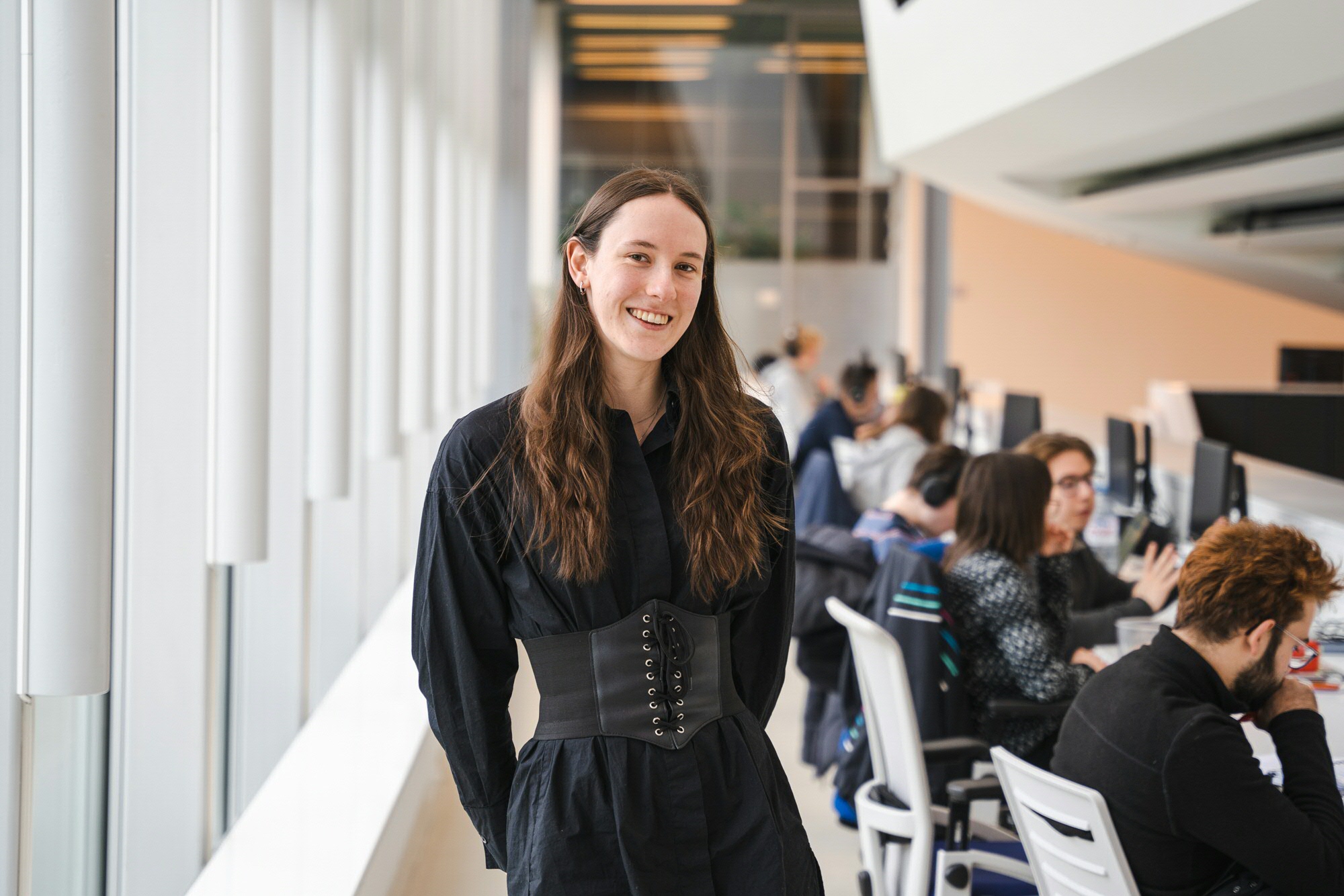
I really like the aspects of the programme that require analytical thinking and problem-solving skills
In high school, I took Computing Science as an elective subject. I remember being very fascinated by programming and always looking forward to class. Because of this, my choice to study Computing Science came very naturally and was not surprising at all to anyone around me. I'm currently in the last year of my bachelor's, and I'm still really happy with my choice. I was pleasantly surprised with all the other aspects of Computing Science that I hadn't thought of before. For example, I really like the aspects of the programme that require analytical thinking and problem-solving skills.
Currently, I'm taking a course called Computer Graphics, which focuses on the mathematical aspect of rendering images. I will also be working on my bachelor's project and thesis soon. For my bachelor's project, I chose to work on a project at a company, which I'm very excited about!
Next to my studies, I also work for the university as a teaching assistant, student mentor, and member of the Computing Science information team. I'm also a member of the study association Cover, where I met many great people. I also enjoy being in the Cover room, where I like to work on assignments or talk with friends.
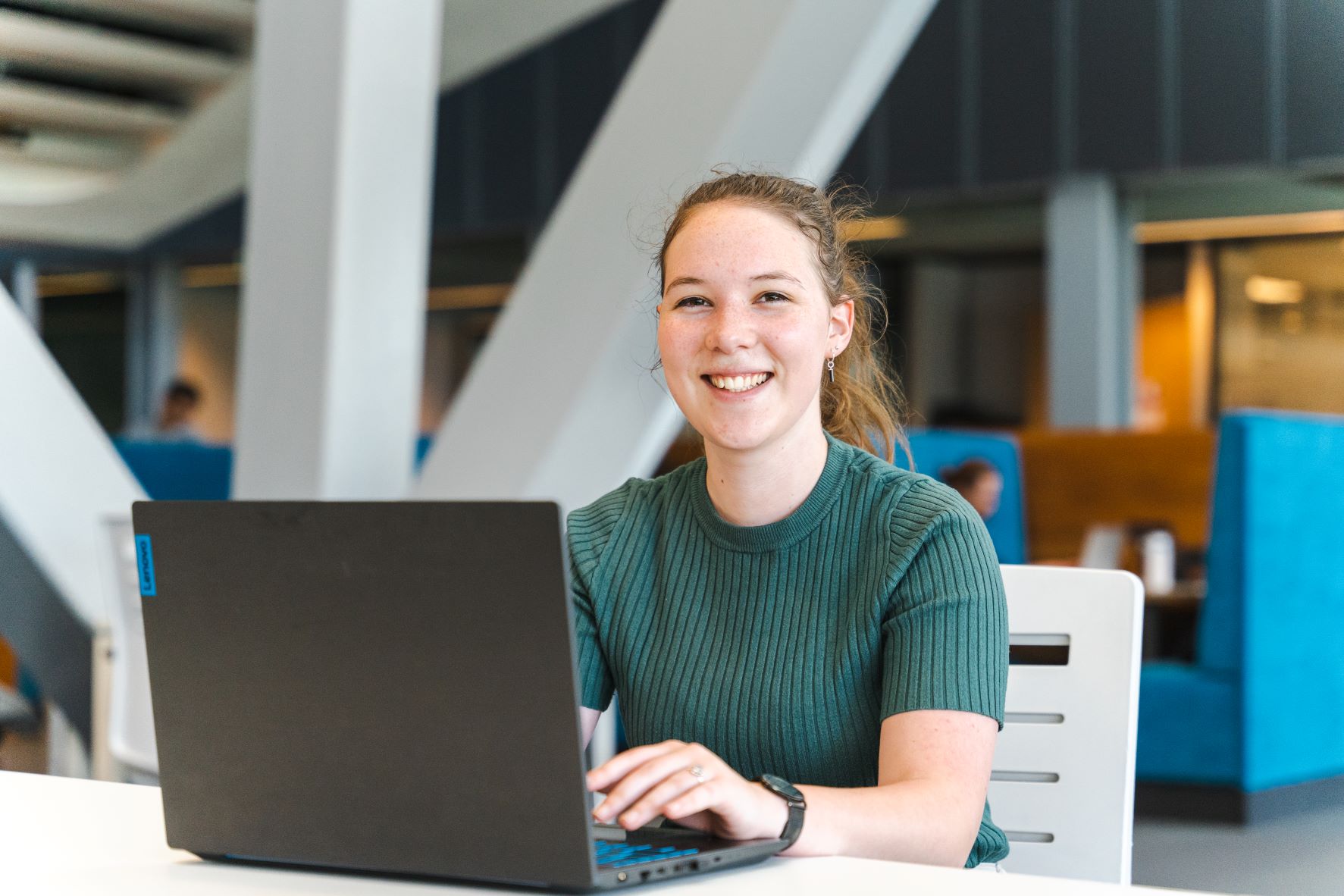
The satisfaction you get after creating a working program is the best part of this degree programme
When I was in secondary school, I struggled with choosing the right degree programme. I liked solving problems, but I did not know which degree programme would be the right fit for this interest of mine. Mathematics was my initial choice, since it was also a subject I had followed at school, but it seemed a little too abstract. After visiting multiple open days and 'Student for a Day' events, I decided to choose the Computing Science degree programme.
A great thing about Computing Science is the fact that you can solve problems and, through programming, immediately see whether the solution works. It is a very practical way of solving problems while still thinking at an academic level. Furthermore, you can start the degree programme without any programming experience, and that was perfect for me.
The satisfaction you get after creating a working program is the best part of this degree programme. Programming can be very frustrating sometimes, especially if you get stuck on something. Yet, you understand that it is all worth it when everything finally works. Your hard work gets rewarded. You understand that the more time and effort you invest, the easier it becomes. This motivation helps me to make progress in the degree programme.
On top of my studies, I also have multiple part-time jobs. I am a member of my degree programme's information team, and I have mentored first-year Computing Science students a couple of times. I would like to do sports at the ACLO more often, but there is usually not enough time for that. I try to frequently see my friends or meet up with them at our study association's office in Bernoulliborg. Going out to eat together is also always nice!
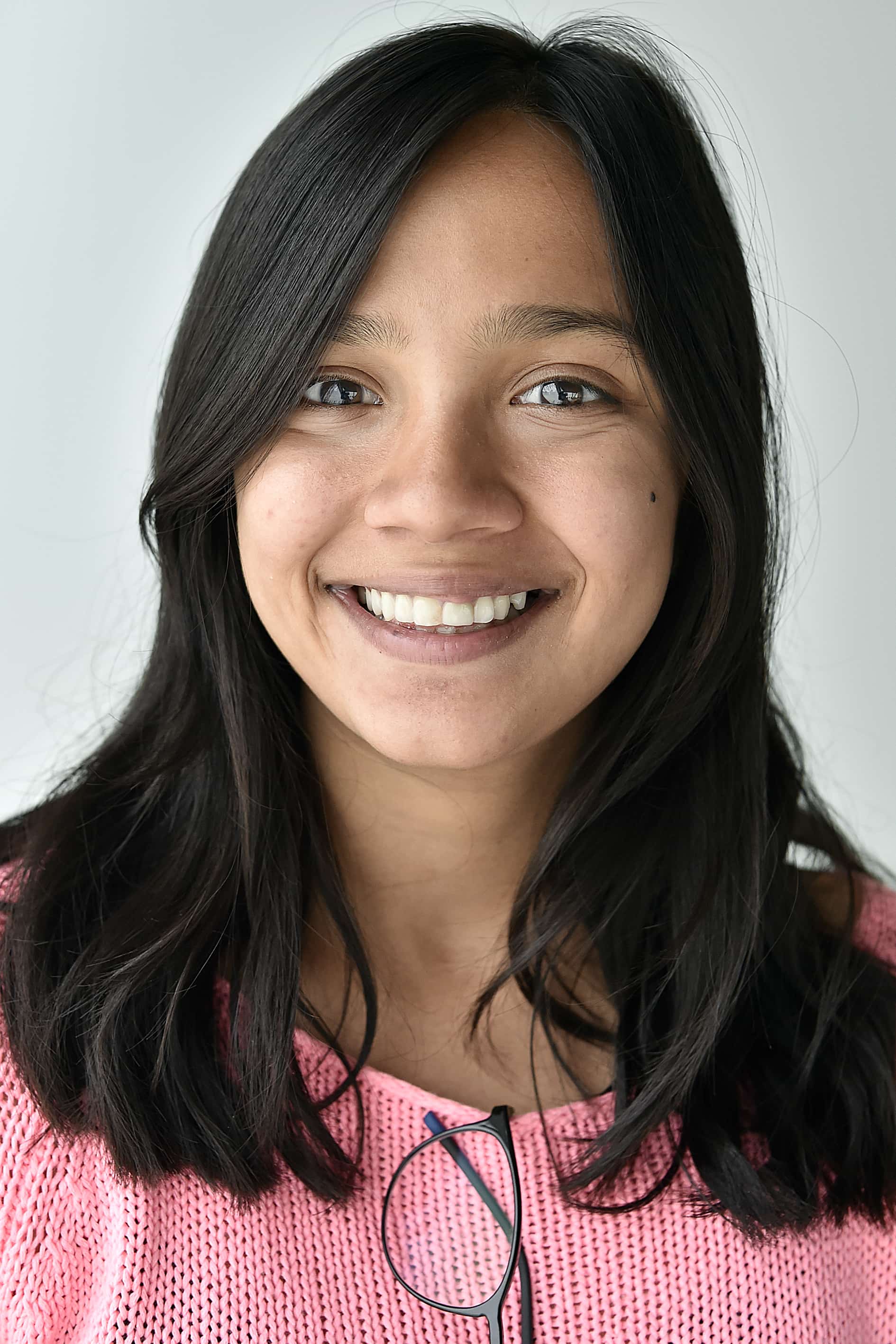
Into mathematics and logical reasoning
My name is Sneha Lodha and I'm from Madagascar. I decided to study Computing Science because I was always into mathematics and logical reasoning. But I didn't want to study something pure like Mathematics. I wanted to apply my skills, and that's what I'm doing now using mathematical principles.
At first I was surprised about the work load required, but you get used to it and you soon find a balance between study and other activities, like sport and friends.
In the first months, I lived in a village outside Groningen, but now I have found a place near the campus. I have great friends and I like the freedom you experience here. You can cycle around and go wherever you want whenever you want!
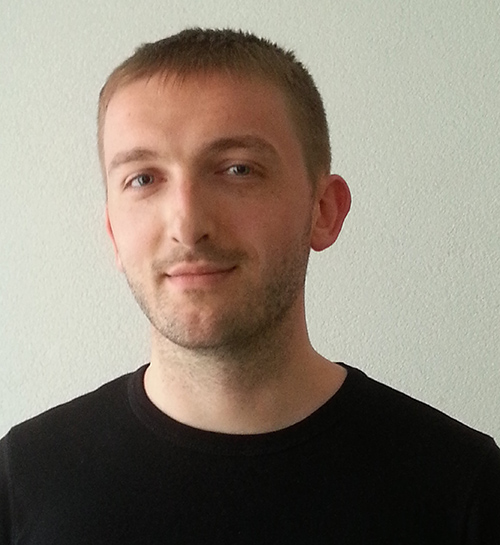
I started as a student, now I'm a project leader
'During my first year I got a job with Manter, a machinery automation company. I was involved in testing new applications.
This helped me get a better grasp of the subject matter and gave me plenty of practical experience and self-assurance, resulting in a job as a project leader as soon as I completed my studies. The projects I work on involve new software systems. Some days I’ll be training end-users, others I’ll design new features, while other days will be all meetings or we’ll spend the whole day testing and fixing bugs.
If I had to choose today, I would do Computing Science again. The demand for software developers continues to grow. I’d also choose to study in Groningen again. My friends studied in other cities, but we all agree: Groningen is the number 1 student city!’
Avdo Hanjalic, software engineer/architect bij Manter B.V
Frank Westers, student Computing Science
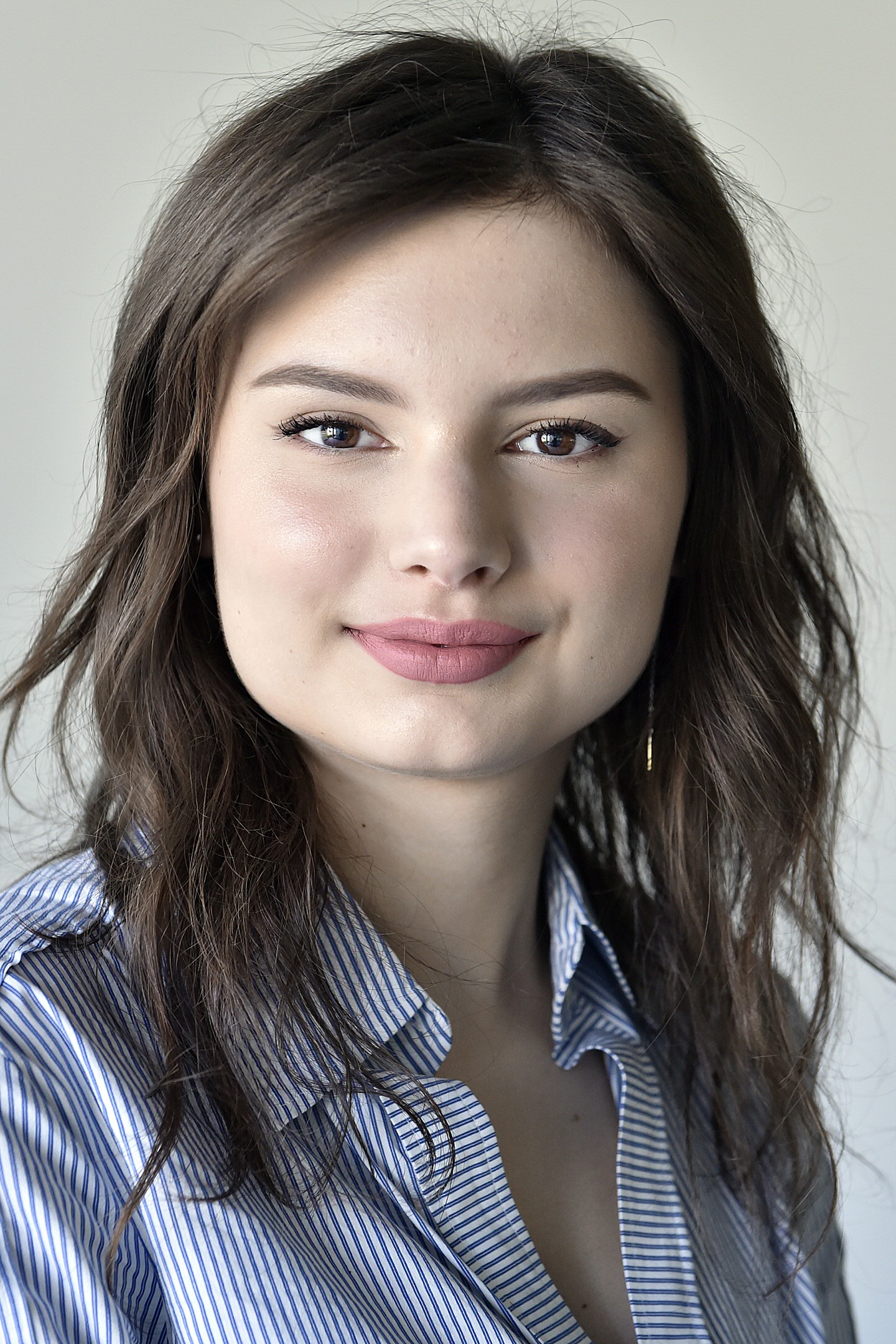
A new perspective on the programme
What I like most about Computing Science is its versatility. I find it very interesting that it's able to associate itself with other fields, like Mathematics and Physics. I enjoyed all the courses I have had so far, but I particularly liked “Program Correctness”. This course really gave me a new perspective on the programme.
I think studying here is quite different from what I was used to
in Romania. During high-school, we were always reminded of what we
have to do, whereas here all the responsibility falls only on your
own shoulders.
I decided to stay in “The Student Hotel” for my first year. Living in a place full of students, all coming from different places, really offers you the opportunity to form new bonds and friendships!
You will be issued a study advice at the end of the first year of study. You can expect a positive study advice if you have earned at least 45 ECTS credit points (out of a total of 60 ECTS; most course units are 5 ECTS). If you have earned fewer than 45 ECTS and are issued a negative study advice, you will not be allowed to continue your degree programme.
You will receive a preliminary study advice in December to make sure that you know where you are. Please contact your study advisor as soon as possible if you have any questions about the BSA system.
